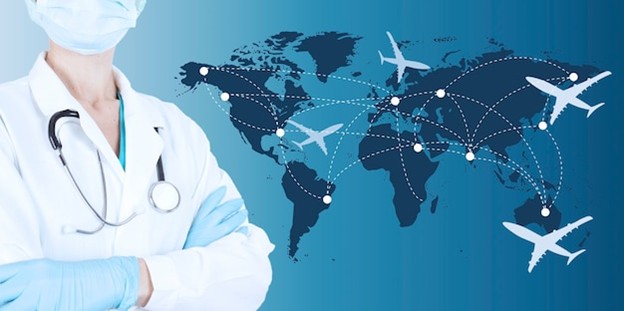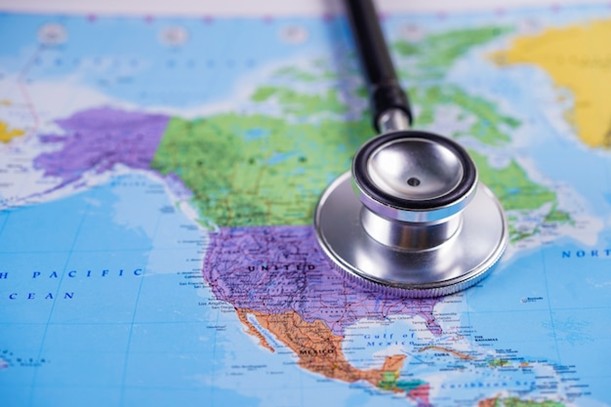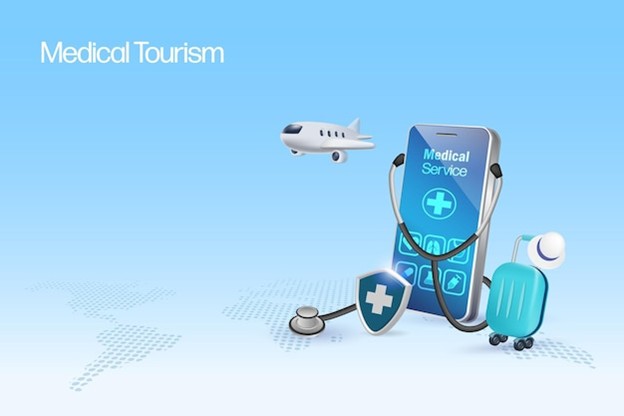
What is Medical Tourism?
Medical tourism refers to the practice of individuals traveling across international borders to obtain medical, dental, or surgical care. This phenomenon often arises due to disparities in healthcare systems, costs, and availability of advanced or specialized treatments in different regions. Medical tourism combines aspects of healthcare and travel, often involving patients seeking treatment at a fraction of the cost, faster access, or higher quality care compared to what is available in their home country.
The medical tourism market is booming. Around 14 million people travel abroad each year to receive medical treatment, according to the Medical Tourism Association, with patients from developed nations such as the UK and the US typically traveling to less-developed countries to access health services at a significantly lower cost than they could at home.
Types of Medical Tourism
There are chiefly two categories of medical tourism. These are the following:
- International Medical Tourism
- Domestic Medical Tourism
The Global Rise of Medical Tourism: A Comprehensive Exploration
In recent years, medical tourism has emerged as a transformative trend in global healthcare. Patients are increasingly crossing international borders to access medical treatments, combining healthcare with the allure of travel. This growing phenomenon is reshaping the way we view healthcare, offering a blend of affordability, accessibility, and quality.
According to the Global Healthcare Accreditation, the data (pre-pandemic levels), the below countries have statistics and data available for medical tourism. Some countries showcase inbound and other outbound data with the average number of patients and primary types of medical procedures sought as follows:
| COUNTRY | YEAR | MEDICAL TOURISM PATIENTS | TYPE OF MEDICAL PROCEDURES |
| South Korea | 2022 | 248,000 patients | Cosmetic surgery, dental care, and stem cell therapy |
| Dubai | 2022 | 630,000 patients | Fertility treatment, cosmetic surgery, and orthopedics |
| India | 2019 | 700,000 patients | Cardiology, cancer treatment, and orthopedics |
| Mexico | 2019 | 1.3 million patients | Bariatric surgery, dental care, cosmetic surgery, stem cell therapy, and orthopedics |
| Turkey | 2019 | 700,000 patients | Hair transplant, cosmetic surgery, and dentistry |
| Spain | 2019 | 120,000 patients | Fertility treatment, cosmetic surgery, and oncology |
| Brazil | 2019 | 250,000 patients | Cosmetic surgery, dental care, and bariatric surgery |
Why is Medical Tourism Booming?
The global medical tourism market is booming, and several factors are driving its growth:
- Cost Savings: For instance, according to Lively, Inc., a coronary bypass averages around $10,000 in India and $40,000 in Mexico (not including travel to and from the destination, or in-country recovery after release from the hospital) and $123,000 the average procedure costs in America.
- According to DentaVacation, in Hungary, dentist prices are 40-70% less than in the UK and other Western European countries. Procedures like all 4 dental implants in Hungary cost $5,200 per arch, while the same costs $15,000 in the UK. We can get porcelain veneers in Hungary at $405, whereas in the UK, they'll cost a whopping $1,100.
- Access to Advanced Treatments: Countries like South Korea and Germany offer cutting-edge treatments and technologies unavailable in many parts of the world.
- Combining Health and Leisure: Destinations like India, Thailand, and Turkey allow patients to recuperate in serene or exotic locations, adding a vacation element to their treatment.

Popular Medical Tourism Destinations
- India: India is experiencing a surge in medical tourism, with a significant increase in medical tourists from Myanmar, Bangladesh, and Nepal. Despite being impacted by the coronavirus pandemic, India is becoming a popular destination for ‘medical value travel’, and its potential in this sector is expected to grow further. Projections indicate that the number of medical tourists will exceed pre-pandemic levels. In 2024, India is expected to cater to around 7.3 million medical tourists, up from an estimated 6.1 million in 2023, according to credit rating agency Crisil.
- Thailand: Thailand has become a world-renowned leader in medical tourism, attracting visitors worldwide with strong support from Thailand’s Medical Tourism Association and the Thai government. According to the MedPark Hospital, in 2023, Thailand's medical tourism industry is expected to be worth $6 billion, with an estimated 3 million medical tourists receiving exceptional medical treatment and rehabilitation programs for a variety of medical fields.
- Mexico: According to the Global Healthcare Accreditation, Mexico ranked third in the medical tourism industry, with a score of 70.05. Mexico has a growing medical tourism industry, with high-quality medical facilities and affordable medical costs.
- South Korea: A leader in cosmetic surgery and cancer treatment. The Ministry of Health and Welfare (MOHW, Minister Cho KyooHong) announced that 606,000 foreign patients visited Korea in 2023, achieving a 2.4 times growth (144.2%) from 248,000 in 2022.
Challenges and Risks in Medical Tourism Market
While medical tourism has numerous benefits, it also comes with challenges and risks:
- Regulatory Issues: Different countries have varying standards for malpractice and patient protection, creating legal uncertainties for international patients.
- Language and Cultural Barriers: Miscommunication can hinder patient-provider interactions.
- Continuity of Care: Patients often struggle to maintain follow-up care once they return home.
- Health Risks: Risk of infections or complications, especially if post-operative care is inadequate.
- Ethical Concerns: Issues such as organ trafficking and exploitation of local resources have raised ethical questions.

Opportunities in the Market
- Telemedicine Integration: Virtual consultations and follow-ups are bridging the gap between patients and providers.
- Government Initiatives: Countries like India and Thailand are offering streamlined medical visas and investing in healthcare infrastructure.
- Insurance Expansion: More insurers are offering cross-border healthcare coverage, making medical tourism accessible to a broader audience.
- Innovative Healthcare Packages: Bundling medical treatments with travel and leisure activities enhances patient experiences.
Competitive Landscape
Key players include:
- TransEarth Healthcare Services
- Medobal
- Bookimed
- RealSelf, Inc.
- KPJ Healthcare Berhad
- JAPAN DREAM TOUR
- JTB Corp.
- SilaMed e.K.
- Medibliss Tours Limited
- American Medical Care
The market features top healthcare providers and facilitators who play a pivotal role in coordinating care. Such as
- Apollo Hospitals (India): A leader in cardiac and cancer care.
- Bumrungrad International Hospital (Thailand): Known for its advanced technology and luxurious care. One of the largest private hospitals in Southeast Asia, Bumrungrad International Hospital cares for over 1.1 million patients from more than 190 countries annually.
The Future of Medical Tourism
As healthcare costs continue to rise and global connectivity improves, medical tourism is expected to expand further. Emerging technologies like telemedicine are enabling pre-treatment consultations, while AI-powered tools are enhancing patient outcomes. Governments in destination countries are also investing heavily in infrastructure to attract international patients.
Many medical tourists now also go in search of elective and cosmetic treatments such as plastic surgery, hair transplants, breast reductions or cosmetic dental procedures. Fertility treatment is also becoming a common reason for people to become medical tourists.
One of the biggest markets for medical tourism is the United States. Due to the high cost of medical treatments in the US, more than 2 million Americans travel abroad for medical tourism every year (accounting for roughly 9% of all medical tourists worldwide). The cost savings speak for themselves, the OECD points out that a heart valve treatment costing US$150,000 in America may only cost US$9,250 in Poland.
The future of medical tourism looks promising, with advancements in technology and increasing collaboration between countries. Emerging trends include:
- AI in Healthcare: Enhanced diagnostics and personalized treatment plans.
- Blockchain for Medical Records: Secure and seamless sharing of patient data.
- Sustainable Tourism Practices: Integrating eco-friendly practices to minimize environmental impact.
- Collaborative Healthcare Models: Partnerships between governments and private sectors to attract international patients.
Conclusion
Medical tourism represents a paradigm shift in how patients approach healthcare. By offering a blend of affordability, quality, and travel, it empowers individuals to take control of their health beyond borders. However, careful planning and thorough research are crucial to ensure a safe and successful medical journey. As the industry grows, medical tourism is set to become a cornerstone of global healthcare, bridging gaps in access and affordability.

